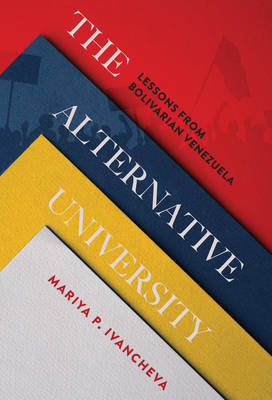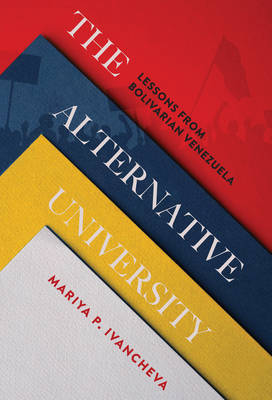
- Afhalen na 1 uur in een winkel met voorraad
- Gratis thuislevering in België vanaf € 30
- Ruim aanbod met 7 miljoen producten
- Afhalen na 1 uur in een winkel met voorraad
- Gratis thuislevering in België vanaf € 30
- Ruim aanbod met 7 miljoen producten
Omschrijving
Over the last few decades, the decline of the public university has dramatically increased under intensified commercialization and privatization, with market-driven restructurings leading to the deterioration of working and learning conditions. A growing reserve army of scholars and students, who enter precarious learning, teaching, and research arrangements, have joined recent waves of public unrest in both developed and developing countries to advocate for reforms to higher education. Yet even the most visible campaigns have rarely put forward any proposals for an alternative institutional organization. Based on extensive fieldwork in Venezuela, The Alternative University outlines the origins and day-to-day functioning of the colossal effort of late President Hugo Chávez's government to create a university that challenged national and global higher education norms.
Through participant observation, extensive interviews with policymakers, senior managers, academics, and students, as well as in-depth archival inquiry, Mariya Ivancheva historicizes the Bolivarian University of Venezuela (UBV), the vanguard institution of the higher education reform, and examines the complex and often contradictory and quixotic visions, policies, and practices that turn the alternative university model into a lived reality.
This book offers a serious contribution to debates on the future of the university and the role of the state in the era of neoliberal globalization, and outlines lessons for policymakers and educators who aspire to develop higher education alternatives.
Specificaties
Betrokkenen
- Auteur(s):
- Uitgeverij:
Inhoud
- Aantal bladzijden:
- 216
- Taal:
- Engels
- Reeks:
Eigenschappen
- Productcode (EAN):
- 9781503634749
- Verschijningsdatum:
- 13/06/2023
- Uitvoering:
- Hardcover
- Formaat:
- Genaaid
- Afmetingen:
- 230 mm x 156 mm
- Gewicht:
- 340 g

Alleen bij Standaard Boekhandel
Beoordelingen
We publiceren alleen reviews die voldoen aan de voorwaarden voor reviews. Bekijk onze voorwaarden voor reviews.











